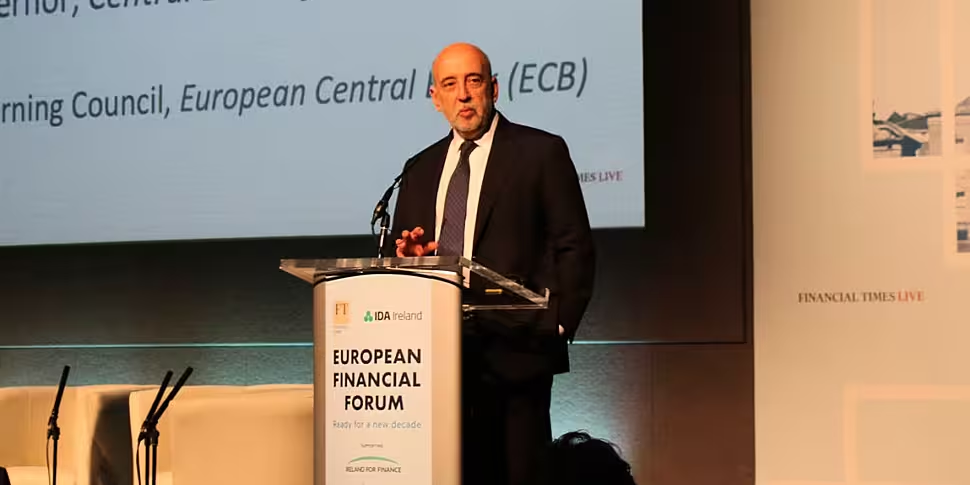The governor of the Central Bank has warned the coronavirus outbreak is adding to "already existing uncertainties" in the global economy.
Gabriel Makhlouf was speaking at the European Financial Forum in Dublin Castle on Wednesday.
He told delegates: "The impact of the coronavirus outbreak in China adds to already existing uncertainties and risks at the global level.
"While it is premature to reach any conclusions, there is the potential for a negative shock to the growth of the international economy in the short-term.
"Beyond that, however, we must wait and see, though recognising that uncertainty has increased."
"Any impact on the Irish economy would be felt through both direct and indirect channels.
"From a decline in demand for Irish exports to China, to the negative impact on overall world demand and a consequential impact on Irish exports.
"As China accounts for a large and growing share of world output - about 19% of world GDP in 2018 - we would expect a disruption to China's economy to have an impact on Ireland."
The Department of Health has said 65 suspected cases of the virus have been tested in Ireland.
However these have all come back negative and there are no confirmed cases here.
It comes as the bank forecast that the pace growth in the Irish economy is set to slow this year and next.
It says a moderation of economic growth is expected in 2020, with a GDP forecast of 4.8%, down from 6.1% in 2019.
It also warns that even if an EU-UK trade deal is agreed, growth is expected to slow further in 2021 to 4.2%.
On Brexit, Mr Makhlouf said: "Brexit-related uncertainty and risks have weighed on confidence and sentiment.
"Tensions in relation to international trade and geopolitics have escalated.
"And our main trading partners have shown weaker growth."
"The UK's withdrawal from the single market represents a substantive change for the Irish economy, reflecting the historical interconnectedness between Ireland and the UK."
"The economic impact of the new trading arrangements will depend on how close or how far they are from current arrangements.
"But it seems likely and unsurprising that any future economic relationship between the EU and the UK will have more hurdles than the status quo.
"Consumers, businesses and regulators should expect, and plan for, more frictions and divergence."
He added: "The outlook for the economy remains positive in the short-term.
"Some moderation in underlying domestic demand growth is likely while some significant risks remain.
"The focus of my remarks has been about the decade ahead.
"We all know that the financial system is evolving and that the challenges for the financial sector are also evolving."









